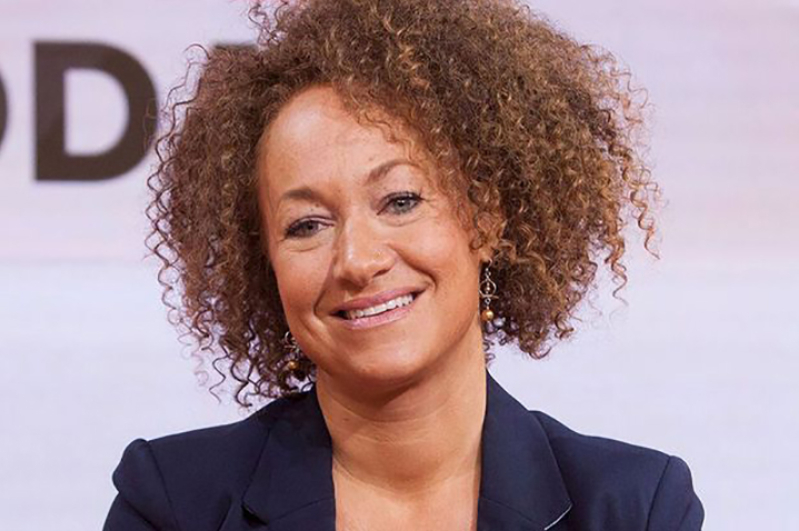
The media has placed a spotlight on former Spokane NAACP President Rachel Dolezal, who identifies as culturally black but is actually a white woman. Now scrutiny has been placed on her upbringing within an evangelical Christian household.
According to Carol Kuruvilla of the Huffington Post, Dolezal's biological parents, Ruthanne and Larry Dolezal, "are deeply conservative evangelical Christians whose faith has inspired them to personally seek out ways to redeem and save humanity." It may explain why Dolezal attempted to represent herself as a black woman while rising through the ranks of the NAACP despite being obviously white.
"[Rachel's] social justice advocacy is just a carry-over of the values within her home," Larry said.
Dolezal's father added that he supports his daughter, commenting that he is "very pleased with all of her advocacy work." However, he expressed disappointment of her deceitfulness.
"When it gets to the point where she misrepresents her identity and ethnicity and is trying to reinvent reality -- well, let's be honest and truthful," Larry said.
Kuruvilla elaborated on Dolezal's parent's worldview on social justice and Christianity.
"They practice Young Earth Creationism, a fundamentalist branch of Christianity that takes the Bible's stories about the beginning of the world quite literally," Kuruvilla wrote. "Young Earth Creationists believe that God created the world in six consecutive 24-hour days, that humans and dinosaurs once walked together and that the Earth is only about 6,000 years old. To Young Earth Creationists, the great flood described in the Bible isn't just poetry -- it's historical fact."
Kuruvilla noted that their Christian faith moved them to spread the Gospel in South Africa in 2002. The Dolezals also took their adopted black children, Ezra, Izaiah, Esther and Zach, with them.
"Larry worked as a general manager at the Cape Town office of Creation Ministries International, an international organization that promotes the creationist message," Kuruvilla wrote. "He also said he did aid work for disadvantaged people in the region."
Larry elaborated on the upbringing the Dolezal children had in his household to Kuruvilla.
"We share a very strong, faith-based, pro-life conviction, and our older children shared that conviction with us at the time we adopted our four children," Larry said. "If you save [children] from abortion, we're willing to adopt them and raise them. It's putting our pocketbooks where our words are."
Journalist Kathryn Joyce, the author of The Child Catchers: Rescue, Trafficking, and the New Gospel of Adoption, indicated to Kuruvilla that some Christians considered adoption as a way of practicing their faith.
"There's a whole sort of theology that talks about adoption as this perfect mirror representation of how Christians are adopted by God, which evangelicals would call vertical adoption. And this would be reflected in child adoption, which they'd call horizontal adoption," Joyce said. "Adoptive parents would be emulating God and Jesus and becoming that role for their children."
However, the Dolezals told the Huffington Post that race did not motivate them in their decision to adopt black children.
"We discovered that minorities are often hard to place," Larry said. "We adopted African-American children because they were available and we were willing."
Larry added that Dolezal quickly adored her new siblings. According to Kuruvilla, she was about 15 years old when the adoptions started to happen.
"Rachel also felt the same compassion to embrace any ethnicity," Larry said. "When we ended up adopting African-American children because they were the ones available at the time, Rachel gravitated to that community and to that people group."
As for his daughter's status, Larry indicated to the Huffington Post that "only the Lord knows her heart."
"Where she stands with him, I can't tell you," Larry said.
One of Dolezal's adopted siblings, Ezra, told CNN that while he appreciated his adopted sister's advocacy for black culture and community, he had second thoughts about her handling of the race issue.
"I believe that the first most important thing regardless of what a person does is that they have integrity," Ezra said. "Rachel has done really good work fighting against racism and police brutality ... but she went about it the wrong way. She said I was born black. I grew up black and I know what it's like growing up as an African-American in this world. She does not."
Ezra believed that Dolezal started her identity transformation as a black woman during her time at Howard University, a historically black institution.
"When she came there, they saw she was white and she wasn't treated that well, especially by people that worked there," Ezra said. "She probably started developing this kind of dislike for being white and dislike for white people. She used to tell Izaiah ... that all white people are racists. She might have developed some self-hatred."
However, Ezra told CNN that Dolezal's chosen identity was similar to living in "blackface," adding that it was "kind of a slap in the face to African-Americans."
"She's only been African-American when it benefited her," Ezra said. "She hasn't been through all the struggles. She's only been African-American the last few years."







